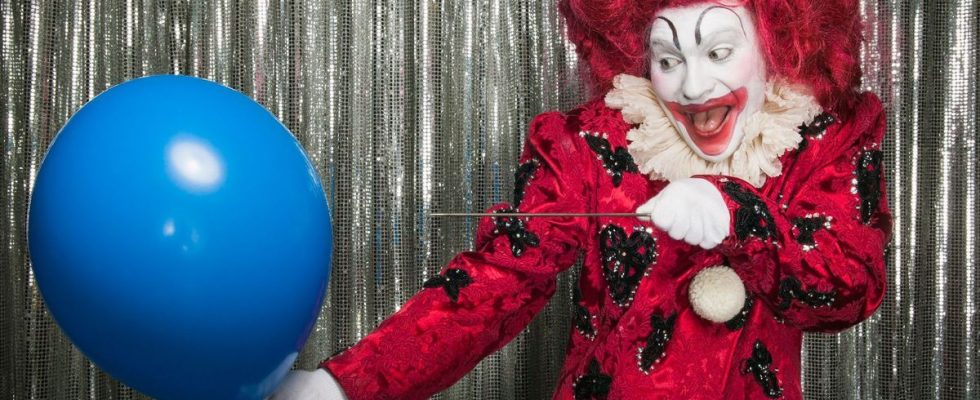As strange as it may seem, the fear of clowns, called coulrophobia, is said to occur in various cultures, in children as well as adults. But what is this phobia due to? Researchers have looked scientifically at the question.
Does the sight of a red nose give you palpitations? White makeup, cold sweats? You are probably suffering from what is called coulrophobia, or the fear of clowns. And even if horror films have been able to fuel the terrifying imagination around clowns, they do not fully explain why the sight of a sad Pierrot can cause discomfort and a real phobia in some people. The phenomenon, which is found identically in several countries, despite different cultures, interested a team of researchers, who wanted to dissect this strange fear a little more.
A fear more pronounced than that of animals or the void
British scientists thus recruited 987 people aged 18 to 77, coming from 64 different countries, among whom 528 reported being afraid of clowns (53% of this population). According to the proposed questionnaires, 5% of them even declared having “extremely scared”, a percentage slightly higher than that observed for other phobias such as fear of animals (3.8% of phobics are very afraid of them), fear of blood or injuries (2.3%) or fear vacuum (2.8%) and confined spaces (2.2%). Other trends also emerged during this questionnaire:
- Women are also said to be more afraid of clowns than men;
- This phobia would decrease all the same with age.
Make-up, factor n°1 of coulrophobia
A new questionnaire was then submitted to the 528 participants who reported suffering from coulrophobia. After reading it, the researchers were able to establish a list of possible explanations from the most probable to the least important.
- Make-up is the first element mentioned. It evokes a strange or disturbing feeling because it gives the clown some not quite human features. A similar response is sometimes seen with dolls or mannequins;
- The exaggerated facial features of clowns are interpreted as a direct sense of threat;
- Clown makeup masks emotional signals and creates uncertainty;
- The color of clown makeup reminds us of death, blood infection or injury, and evokes disgust or avoidance;
- The unpredictable behavior of the clowns makes us uncomfortable;
- The fear of clowns is inherited from family members;
- Negative representations of clowns in popular culture (notably with Pennywise) have left their mark;
- A scary experience with a clown.
Thus the traumatic experience only comes in eighth position, preceded by the negative representation of clowns in popular culture, when one could think that it was the majority reason.
For the researchers, the feeling arises mainly from the fact of not seeing the true face of the clowns, whose emotional intention is not well understood. The researchers do not wish to stop there: “If makeup that masks emotions causes fear, do people who have their faces painted like animals also create the same kind of effect?” they ask. Or is there something more particular in the composition of the clowns that feeds this fear? The search continues.
